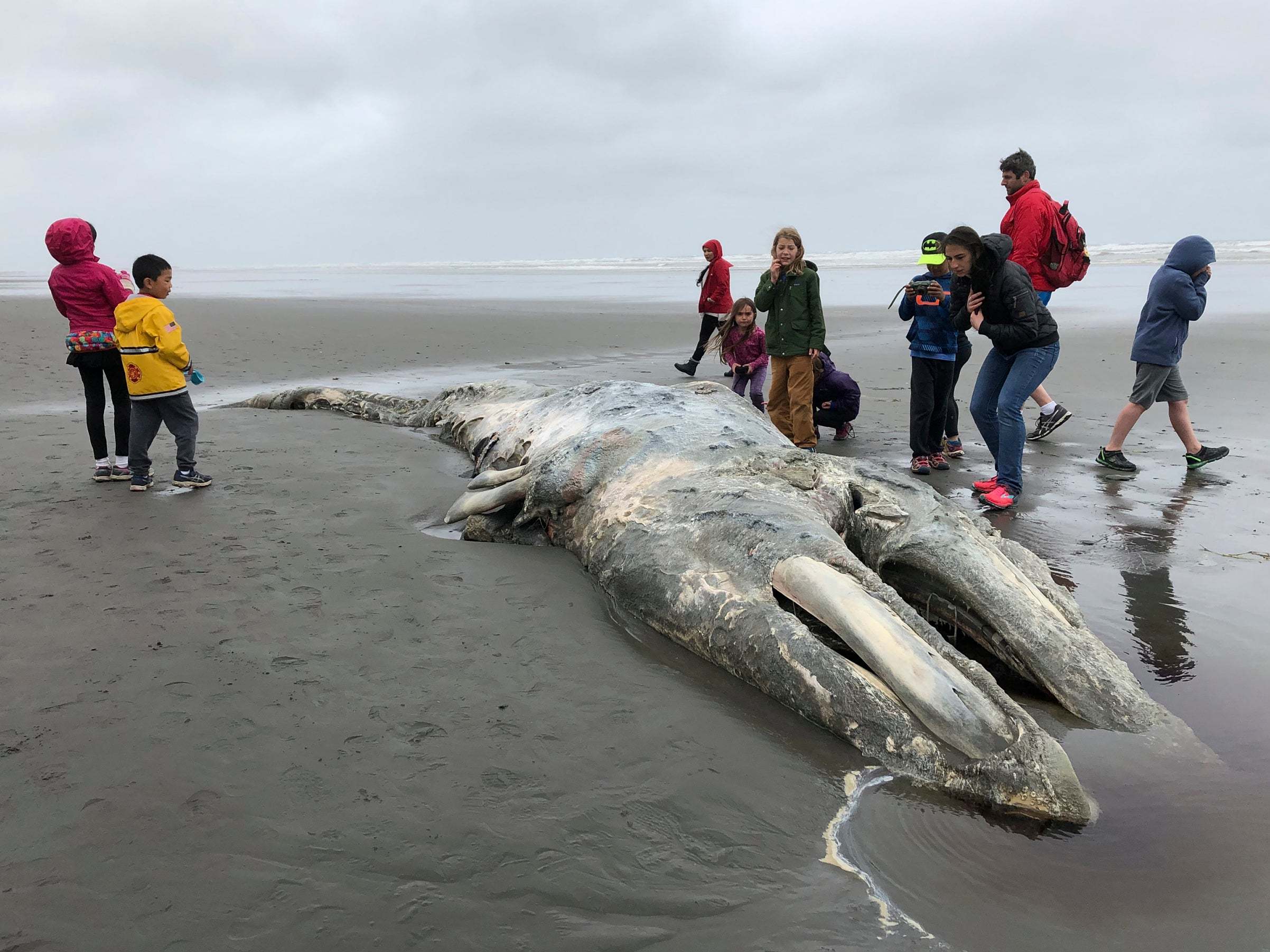Washington state residents requested to allow whale carcasses to rot on their property after ‘unusual mortality event’ leaves record numbers dead
Those who allow carcasses to remain are ‘supporting the natural process of the marine environment’ NOAA says

Your support helps us to tell the story
From reproductive rights to climate change to Big Tech, The Independent is on the ground when the story is developing. Whether it's investigating the financials of Elon Musk's pro-Trump PAC or producing our latest documentary, 'The A Word', which shines a light on the American women fighting for reproductive rights, we know how important it is to parse out the facts from the messaging.
At such a critical moment in US history, we need reporters on the ground. Your donation allows us to keep sending journalists to speak to both sides of the story.
The Independent is trusted by Americans across the entire political spectrum. And unlike many other quality news outlets, we choose not to lock Americans out of our reporting and analysis with paywalls. We believe quality journalism should be available to everyone, paid for by those who can afford it.
Your support makes all the difference.So many dead gray whales have washed up on the coast of Washington state in the north west US, that authorities are asking landowners to allow the huge mammals to decompose on their property.
About 70 whales have been found dead this year on the US west coast, the largest number since the year 2000.
At least one Washington state waterfront landowner has reportedly said yes to the request from the National Oceanic and Atmospheric Administration (NOAA) Fisheries to let a whale carcass rot on their property.
The NOAA said by volunteering property as a disposal site landowners can support the natural process of the marine environment, and skeletons left behind can be used for educational purposes.
But the carcasses can be up to 40 feet (12 metres) long, meaning the decaying process could take months.
Landowner Mario Rivera of Port Hadlock, Washington, told Seattle-based KING5-TV the smell is intermittent and “isn't that bad”.
“It is really a unique opportunity to have this here on the beach and monitor it and see how fast it goes,” said his wife, Stefanie Worwag.
The federal agency said about 30 whales have stranded on Washington's coast this year, the most in two decades.
The 70 dead whales found this year were along waterfronts in California, Oregon, Washington and Alaska.
About five were found on British Columbia beaches. But authorities said the number was a small fraction of the total because most sink or wash up in remote areas and are unrecorded.
NOAA Fisheries has declared this year’s die-off an “unusual mortality event”, and provided additional resources to respond to the deaths.
“With the unusual mortality event of these grey whales, we know more whales will be coming in, or there is a high likelihood that more whales will die within Puget Sound and out on the coast,” said Betsy Carlson of the Port Townsend Marine Science Centre.
Officials say the grey whale population is estimated to be about 27,000.
Additional reporting by AP
Join our commenting forum
Join thought-provoking conversations, follow other Independent readers and see their replies
Comments